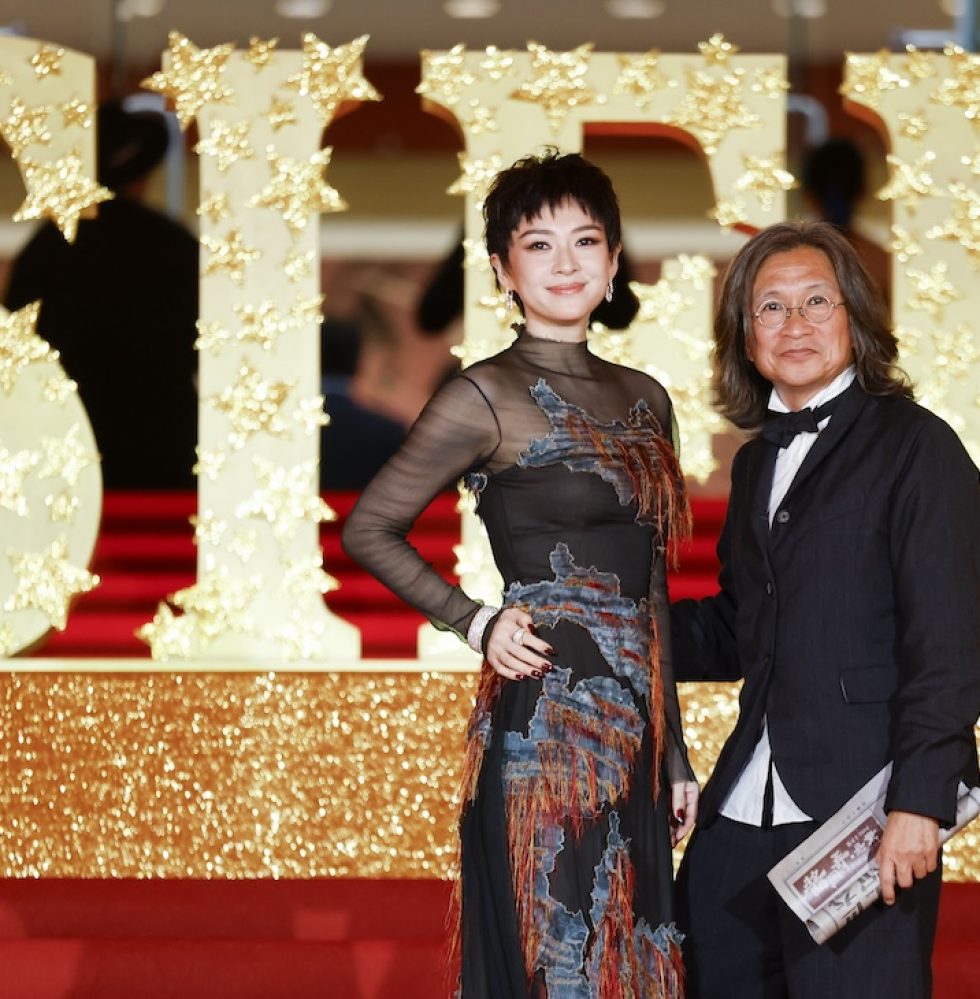
A mystery has been resolved this week at the Shanghai International Film Festival as Peter Chan’s re-worked version of She’s Got No Name helped open the event, before going on an almost-immediate limited release on 120 screens spread across this vast city.
The acclaimed Hong Kong filmmaker’s decision to split the film – which made its premiere out of competition at Cannes in 2024 – into two parts had raised eyebrows, as did the news that the first installment would take the marquee billing at China’s major annual cinema gathering.
In the end, it all makes sense.
While the Cannes version’s 150-minute running time and twisting narrative arc had prompted questions of the film’s commercial potential, the version of She’s Got No Name that screened at SIFF comes in at a tight – and tense – 96 minutes that dig deep into the darkness of the real-life tale of an abused woman Zhan-Zhou (played by Zhang Ziyi), charged with the murder of her husband in the Japanese-occupied Shanghai of the 1940s. It was a case that gripped war-torn Shanghai, given the gruesome details of the murder and subsequent dismemberment of the victim, the fact that the victim’s head was never found, and the desperate circumstances of poverty and abuse under which it all unfolded.
SIFF also provided an ideal platform to showcase a production where Shanghai itself plays a scene-stealing, co-starring role, while its stars were on hand to ramp up the glamour during the festival’s opening ceremony.
The day after the opening finds Chan being whisked between screenings as the film rolls out across Shanghai before its nationwide opening on June 21. He’s in a reflective mood, sipping coffee in between engagements in the back of a people-mover as the rain-soaked city streams past outside.
She’s Got No Name’s narrative is now split between the aftermath of the murder – Zhan-Zhou’s incarceration and trial and the emergence of it all as a cause célèbre – and what’s to come in the next film, which introduces new characters (including the down-at-heel lawyer who came to Zhan-Zhou’s aid) and the first whispers of feminism in China.
“It’s a very experimental thing to do, I know,” says Chan of the bold, two-part approach to his story.
She’s Got No Name marks a definite shift in tone and in mood for the 40-year veteran who has never been afraid of jumping genres, from the romance of Comrades, Almost a Love Story (1996) to the action of The Warlords (2007), and on to the comedy of American Dreams in China (2013).
This first installment is all shadows and noir-steeped depictions of desperate people in desperate times, while Zhang is almost unrecognizable in the lead, playing a character beaten down by fate and by toxic masculinity.
Risks were obviously taken by all involved, but today Chan is content as his vision for the film has been realized, and he talks through the process with The Hollywood Reporter.
So we have to start with the decision to turn one film into two. When did this concept first come to you?
Last year, we got all the support from the China film authorities to expedite things so a film that wrapped in March could go to Cannes in May, including censorship and everything. It’s about a wife murdering her husband, dismembering him. Obviously, there is blood and gore, and even the issue of feminism, which is a hot-button topic in China right now, hotter probably even than in the US. There were a lot of hiccups that could have happened, and they didn’t. It was smooth sailing. Except the two-and-a-half-hour version was too short for my vision, and it was also too long for commercial release. So we ended up being neither here nor there.
What was the work you decided you had to do?
I ended up cutting a four-hour film, which actually lends itself to be a four-part [TV] series, and I thought, ‘This is my movie.’ Then I took it back here, to production partners Huanxi Medi,a and their thinking was that the first two parts and the second two parts could be put together and it could be two movies. It’s a very experimental thing to do, I know. It sounds so unprofessional to say something is experimental when it’s at this scale and budget in an industry that is quite advanced, China. But it truly is a very experimental experience, almost surreal to a certain extent. So this is probably one of, if not the most ambitious, production I’ve ever been through.
What was the actual work done on what you had at your disposal? Were there reshoots?
No. Last year at Cannes, things like special effects were not done. We simply didn’t have time. There were also a few scenes that we initially decided were too sentimental, small details about Ziyi’s character that had to be trimmed, even though I thought that made her a little vague. So we could expand on that, and also small details about other characters. There were scenes that had to be shortened in the Cannes version to make the two and a half hours. But now the two films will be three-and-a-half hours with the same material we had.
It’s such a different film for you in terms of tone and mood, especially. How did you approach that change?
It’s such a dark vision, this first episode. The second is a little bit better because the second is more humanistic and more about relationships, more like my movies, actually. We decided very early on that we wanted to make Shanghai look different from all the TV series that have been shot here. There have been so many TV series shot here, spy movies, everything. So we always thought that we wanted to make it more formalistic in terms of how we place our shots, and we found architecture, art deco, that you could frame it in a more formalistic style, while also exploring expressionism, German expressionism, and its dark shadows. So, it has become one of my more cinematic and stylish movies, which is a good change for me, after 30-odd years of directing. To venture into territories that you are less comfortable with its very exciting.
How did you develop Zhang Zhi’s character, who slowly emerges with such strength?
Like all my movies, I’m attracted to the story first, and – other than Warlords and American Dreams in China – all of my movies are about strong women. My central characters have always been strong women and weak men, and so it is in this movie.
And so much of it all hinges on Zhang’s performance, which is remarkable.
Totally. And she didn’t care about what she looked like; she was completely immersed in the movie. Ziyi is so strong, as a character herself, and she’s always been like that, in every movie. So we wanted her to be tough in this movie, but she had to end up being tough. She starts being completely weak, vulnerable, and victimized, and futile, and slowly you see that strength.
How about playing here at SIFF, given that Shanghai plays such a role in the film itself? How has that experience been for you?
There is just so much around here. We found a whole block that somehow was untouched from 100 years ago. When I first saw the location, three families were still living there, but now it’s empty. There is a policy here now where they have realized that there are so many heritage buildings and they should be preserved. Shanghai was the film capital of China from the 1920s and ’30s, and Shanghai is now experiencing a revival of being a cinema hub. I’m sure they’re trying the best they can to get a certain attention, a national image for cinema, so where better to showcase a movie completely shot in Shanghai, helped by the Shanghai government to secure all the locations, than here?



